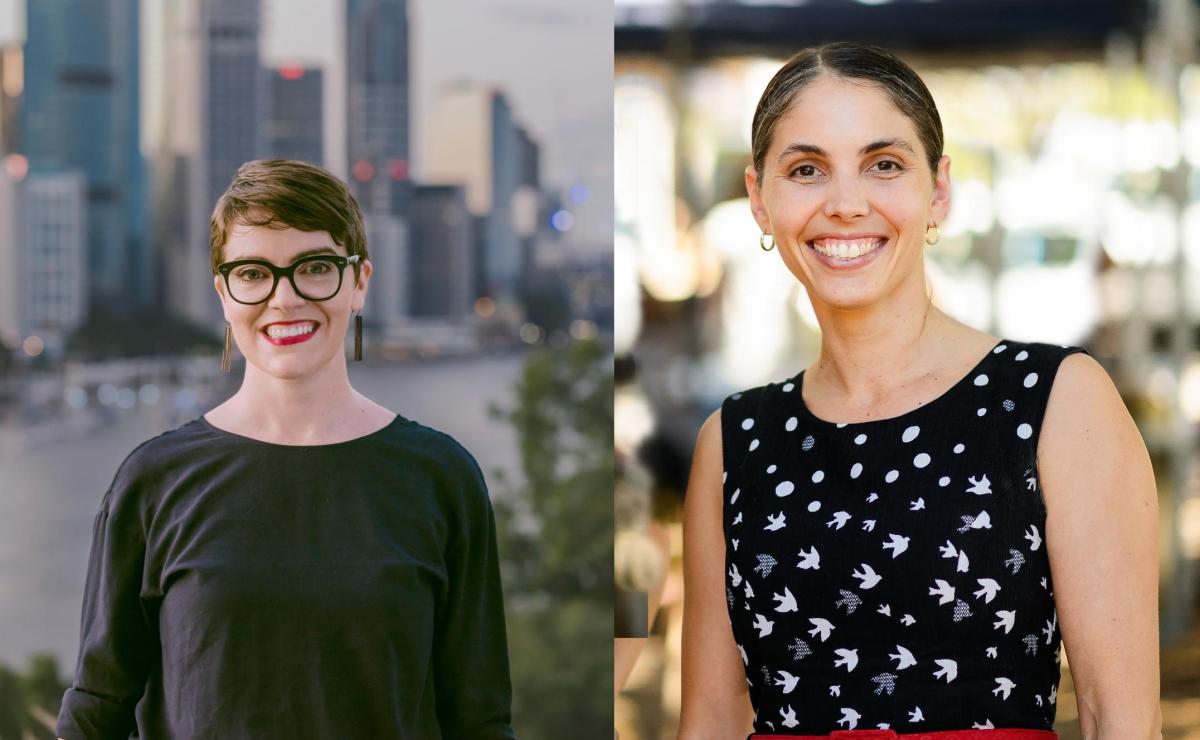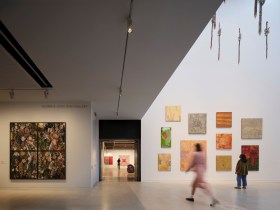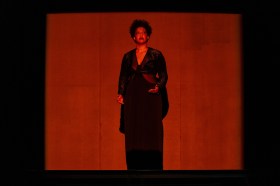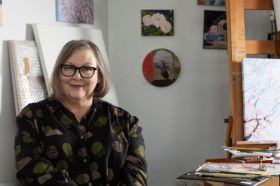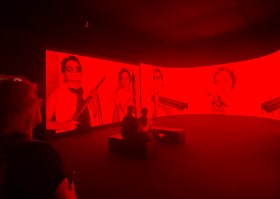The arts and entertainment industry was one of the first to be hit by COVID lockdown restrictions. The sector has suffered enormously throughout the crisis, but the challenges of 2020 aren’t unique – the crisis has revealed, and extended, existing cracks in our funding and support for the arts, and for artists.
We’ve been speaking with hundreds of residents over the last few months, including many artists, small arts business owners, and people who support our local arts scene. People have shared stories about small businesses forced to lay off staff, the challenges of negotiating with landlords for rent relaxations, or new expenses as people invest in new tech to shift online.
There has been a 33% reduction in accommodation and food services and 27% reduction in arts and recreation, and an estimated $330 million in contracts lost. The film sector, often relying on artists and technical staff from abroad, has been in near total shut down. A walk around places like West End or Fortitude Valley, usually busy with music and performances, shows a community under strain.
While venues have reopened in Queensland, the return of the virus in Victoria shows how quickly circumstances can change.
The size of the domestic arts sector does not provide the scale necessary to sustain the industry at pre-crisis levels, and the prospect of major international acts being able to tour again is very uncertain. The logistical capacity necessary, in the form of supporting services and skilled operators within the industry to put on major acts, must be maintained in order that the industry can be sustained or reactivated at such time when international touring may be resumed.
Artists have been, of course, inventive and creative in finding new pathways to share their art and make a living. Virtual music and arts festivals, digital releases, new enterprises, online stores and pop-up projects have been a bright spark during a tough year.
Projects like Superordinary in Brisbane’s CBD – an office block temporarily hosting music and artist studios through negotiation with developers planning to redevelop the site – have provided spaces for creating new ways to connect with people online.
But this individualisation of resilience – praise people on the ground for being ‘resilient’, ‘flexible’ and ‘innovative’, while cutting funding, and transferring risk from governments to individuals – is a key hallmark of neoliberalism worldwide.
Resilience has been available to some – those with a buffer of resources and time, or access to a diminishing JobKeeper. For many others, this hasn’t been the case.
And when the lockdowns end, and we’re allowed to gather again, not all of us will be there – the mental load of COVID, loss of work and support, has taken the lives of a number of musicians this year.
This individualisation of resilience – praise people on the ground for being ‘resilient’, ‘flexible’ and ‘innovative’, while cutting funding, and transferring risk from governments to individuals – is a key hallmark of neoliberalism worldwide.
Even before COVID, the arts are often treated as expendable. Federal funding has been steadily cut over the past decade. The word ‘art’ didn’t appear in the 2020 Budget. The Brisbane City Council budget this year cut its arts funding – while also giving cuts to property developers. Australia Council funding has declined by 20% since 2013, and is predominantly targeted at the major performing arts organisations, like QAGOMA and QPAC, with less than 10% going to independent artists and small to medium-sized organisations – despite them having twice the patronage of big organisations.
Without funding for those smaller organisations, it’s not clear where large galleries will source their local talent in the coming years.
The Greens, as a party committed to fighting for everyday people, have been vocal in defending and advocating for the arts sector. Federally, the Australian Greens have been pushing for a $2.3 billion COVID recovery package for the arts, including funding for live music, the screen industry, and artist in residence programs.
We’re pushing for funding for small-medium infrastructure projects to construct and upgrade local community concert, exhibition and studio spaces. Film and screen funding would focus on Australian stories and children’s content vital for our cultural identity, education and local jobs.
The Greens have also been calling for support for small media organisations, including pushing to increase annual funding for First Nations Media, and changes to broadcast licensing to make it easier for First Nations broadcasters to get broadcast licenses.
INVESTING IN QUEENSLAND
In Queensland, we’ve been calling for increased council and state grants for individuals and small organisations, not-for-profit and community groups. In South Brisbane, over the lockdown, the local Greens councillor Jonathan Sri, funded 12 artists and bands to record songs they were writing and rehearsing during the shutdown months. The resulting album, The Art of Hybernation, captures the sounds of the shutdown.
The Greens’ introduction of local participatory budgeting has directed funding towards public art and murals.
We’ve also been calling for investment in new arts and cultural spaces, like transforming the heritage-listed Boggo Road Gaol into a music and arts hub, providing affordable spaces for artists to work, teach or exhibit. In Fortitude Valley, Greens candidate Kirsten Lovejoy is pushing for the heritage listed McWhirters and Waltons sites to be transformed into a music collaboration precinct, and for the old International Hotel to be transformed into an arts hub.
Particularly in the Brisbane inner-city, overdevelopment has priced artists out of access to studio spaces, and is squeezing parkland and public infrastructure. People-driven planning, where the community gets a real say in how our neighbourhoods are developed, would help to create space for arts, music and performance, embedded in our neighbourhoods.
We’re also pushing for new parklands that include stages, murals and sculptures, spaces for markets, and spaces for people to engage with community arts.
We’ve also been pushing for the establishment of an Aboriginal Cultural Centre at Musgrave Park in West End, designed, led and controlled by First Nations peoples, with funding from all levels of government – something local Aboriginal community groups have been advocating for decades.
More broadly, the Greens are pushing for big corporations to pay their fair share, so that everyone has access to the services, infrastructure and support they need to lead a good life.
Many of these initiatives – housing, healthcare, fully funded education – would not only support artists, but support broader, healthy communities, who would have the time and resources to support and enjoy arts, music and entertainment.
We’ve been calling for construction of 100,000 public homes, available not only to people experiencing homelessness or illness, but any Queenslander who wants to live in a beautiful, sustainable, affordable public home. We’re calling for free childcare, and fully funded state schools with free school breakfasts and lunches.
We’re pushing for free public transport, and high quality walkways and cycleways – helping get people to and from arts venues, and saving people money that could instead flow through the arts sector. We’re also calling for 200 new bulk-billed GP clinics across Queensland, which would include mental health practitioners. For small businesses, we’re offering rebates to install batteries and solar panels, and a phase-out of payroll tax.
Most importantly, the Greens are a party that put everyday people first. Because we don’t take corporate donations, we don’t owe any favours to property developers, or mining corporations, or the big banks.
Instead, we’re there to fight for everyday people, and to be giving power back to communities, like the arts community, who have been on the frontlines of COVID, and decades of neoliberal-driven funding and service cuts.

